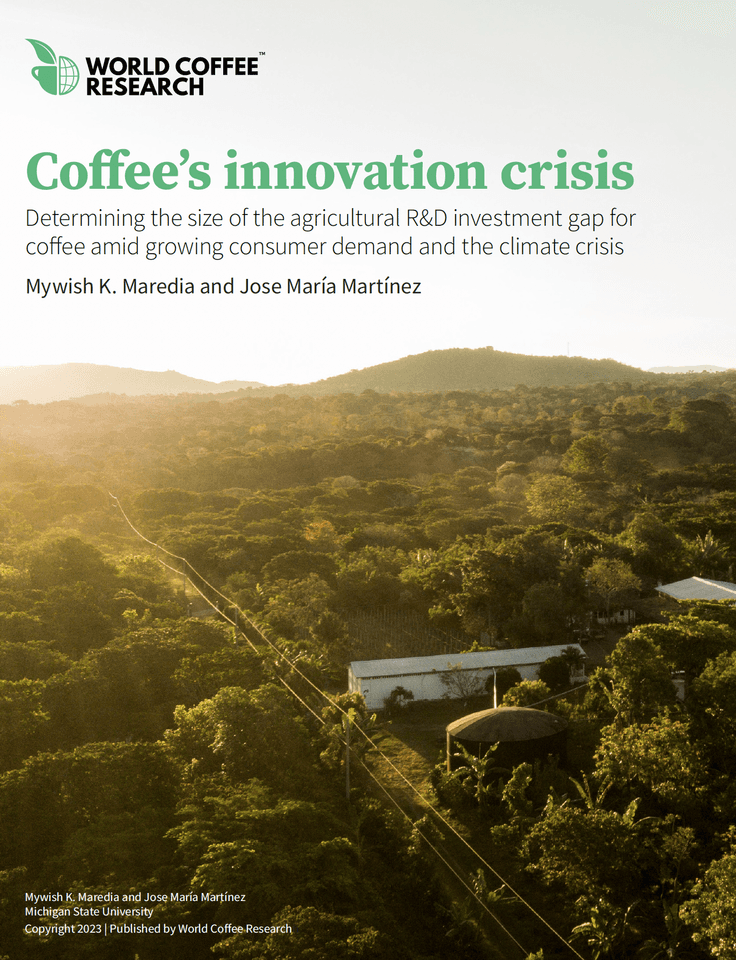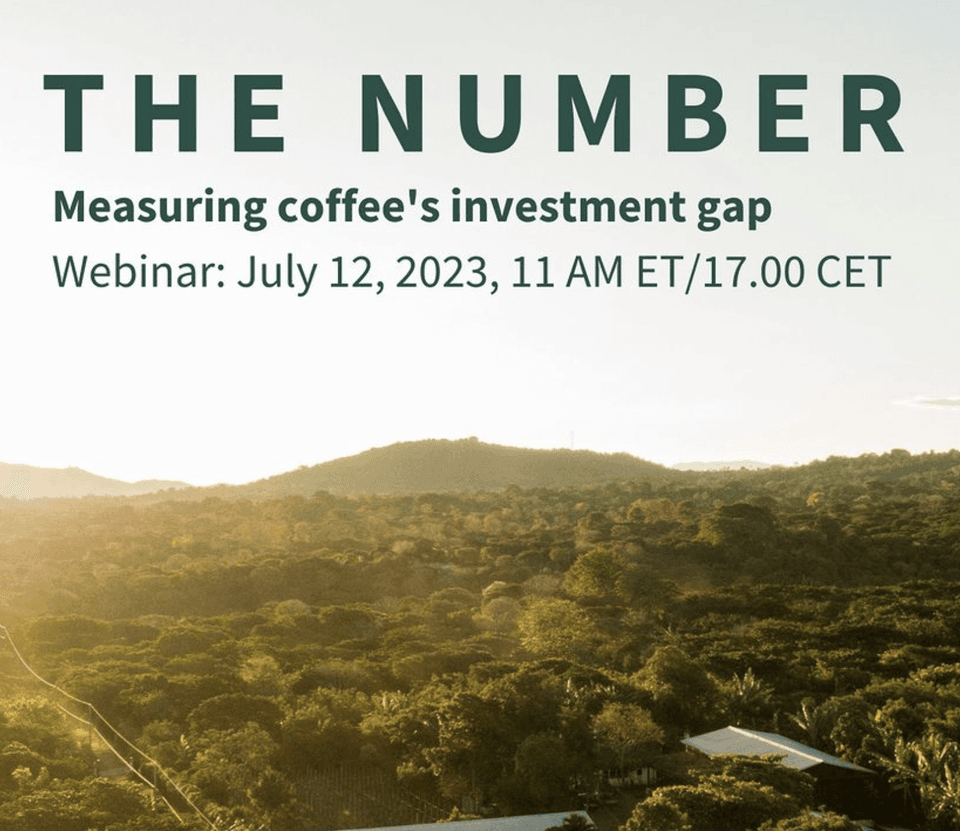
Coffee's innovation crisis
Underinvestment in R&D drives instability, consolidation, and loss—fewer farmers and fewer countries growing coffee, and greater supply instability. WCR has quantified the need for $452 million more per year to be invested in coffee agriculture R&D to preserve origin diversity across many countries and support farmers to adapt to climate change.
This white paper by Dr. Mywish K. Maredia and Jose Maria Martinez of Michigan State University's Department of Agricultural, Food, and Resource Economics develops an economic model in order to provide a rational basis for understanding the true size of coffee’s agricultural R&D gap in the face of rising demand and climate change.
Introduction
Coffee is the world’s most popular beverage and consumption is expanding in both importing and exporting countries, but the looming climate change crisis poses an existential threat to coffee producers. At the same time, coffee has seen persistently stagnant or declining productivity trends in most producing countries outside the three biggest producers—Brazil, Vietnam, and Colombia—despite prior calls to action and collective efforts to address this challenge.
This combination of factors should be a cause of urgent concern for the whole industry. If current trends continue, we will be unable to meet the world’s growing demand for coffee, let alone to ensure that coffee production is economically and environmentally sustainable. Increasing global investments in coffee R&D to accelerate innovations across multiple countries can help reverse this trend and support the coffee sector to keep up with growing consumer demand and respond to the challenges of climate change and poverty, while avoiding further consolidation of production.
Yet coffee’s current level of investment in agricultural R&D is shockingly low. We estimate that current total agricultural R&D investments in coffee for the global south total is about US $115 million (in constant 2020 US dollars). In our estimates, 90% of these investments are made by the public sector and 10% are made by the private sector. As a general rule, R&D investments to different commodities should be allocated proportionally to their market value (Fuglie, 2022). The total value of green coffee makes up about 4.8% the of total value of agricultural output in the 45 countries included in this analysis. Coffee should therefore make up a similar percentage of agriculture sector investments in these countries—yet today, the investment amount is a mere 1.8%.
About the authors
Dr. Mywish Maredia is fixed-term professor of Development Economics in the Department of Agricultural, Food, and Resource Economics at Michigan State University, and Interim Co-Director of the department’s Food Security Group. Her research has focused on the economic impacts of agricultural R&D, technology adoption, farmer willingness to pay for quality inputs, seed system transformation, agrifood system transformation with a focus on diet change and its implications on nutrition, and the economics of science and technology policies. She has led several research initiatives in Africa, Asia and Central America involving field experiments and extensive data collection. Her research on impact evaluation has focused on a wide range of topics, including land titling, nutrition and value chain, information and communication technologies (ICT), scaling up adoption of agricultural technologies, and the assessment of technology transfer models (extension).
Mywish has worked as a consultant with many international organizations, served as the Director of the Feed the Future Innovation Lab for Food Security Policy from 2016-2020, Associate Director of the USAID funded Bean/Cowpea and Dry Grain Pulses CRSP (later renamed as the Legume Innovation Lab) from 2000-2009, and as a member of the Standing Panel on Impact Assessment of the CGIAR’s Science Council from 2006-2011. She was the recipient of the Outstanding Ph.D. Dissertation Award in 1994 from the American Agricultural Economics Association (now known as Agricultural and Applied Economics Association).
She is working on several grant funded research initiatives on a variety of topics and geographical regions (See Dr. Maredia’s CV, google scholar profile, and ORCID ID).
Jose María Martínez is a Ph.D. student at Michigan State University. His research interest lies in the intersection between agricultural technology adoption, impact assessment, and sustainability science. Before his enrollment, he visited AFRE during fall 2019 with the support of Dr. Mywish Maredia and sponsored by the USDA through the Norman E. Borlaug Agricultural Science and Technology Fellowship. Native from Colombia, Jose María held a position as Research Fellow at the Colombian Corporation of Agricultural Research (Agrosavia), where he led technology adoption studies on traditionally neglected crops such as quinoa, peach-palm, cape gooseberry, and cacao. Before that, he worked as a Research Assistant at the Alliance Bioversity International-CIAT (CGIAR) in the applied economics lab, supporting several projects focusing on the adoption of productive technologies among small-and medium-scale farmers in developing nations.
This white paper corresponds with a webinar hosted by WCR in July 2023. The event featured a presentation by Dr. Maredia and a conversation between her and Chief Executive Officer Dr. Jennifer "Vern" Long, to support the coffee industry form a better understanding of what the investment gap means for its future. Click the link below to watch the recording of the webinar.
